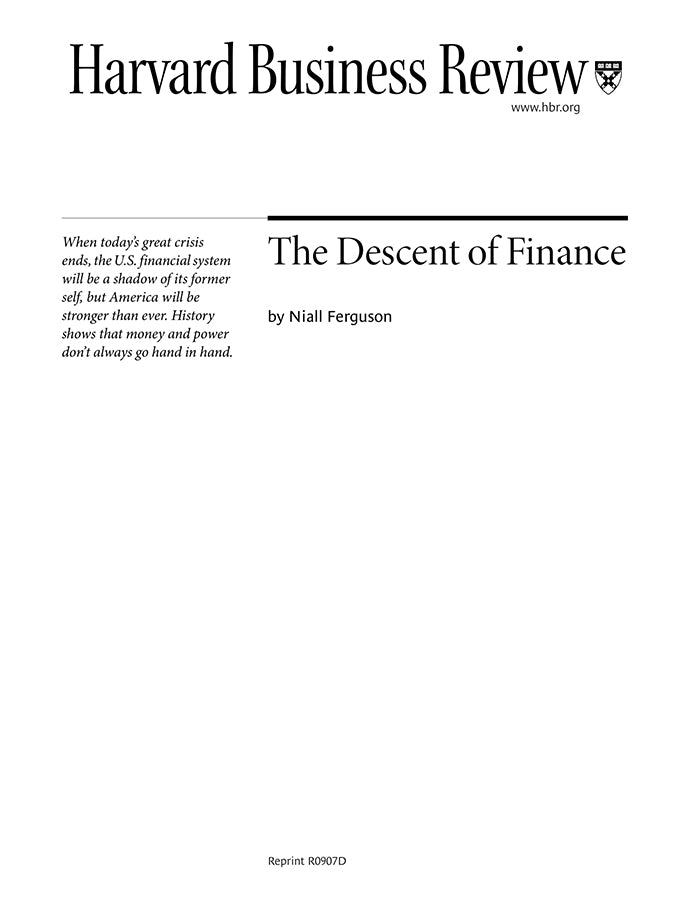The Descent of Finance
受取状況を読み込めませんでした
What if the current recession turns out to be like the Great Depression of 1929-1933? Four years from now, the United States might find itself with a still-shrinking economy, half as many banks as in 2009, a third as many hedge funds, and retail banking resembling a public utility. The federal debt could be at $20 trillion, the top income tax rate at 45%, and the S&P 500 at 418. Ferguson, a professor at Harvard University and Harvard Business School, imagines that to be the worst-case scenario. The Breakdown, as Ferguson calls it, would alter the international economic order, too, with China's GDP rising to half that of the U.S. by 2013 and the IMF's Special Drawing Rights replacing the dollar as the international reserve currency. Ferguson analyzes the roots of the crisis as well as the measures taken by the Obama administration to tackle it. He goes on to describe the impact on the global economy and points out that the slowdown is hurting other nations more than the U.S., thereby building a powerful case for a somewhat more sanguine view of America's future. In a better-case 2013, he posits, the Federal Reserve's policies have produced neither inflation nor deflation. A remarkable number of new banks have appeared, the top income tax rate is 35%, and the S&P 500 stands at 976. Because the world has become more dangerous as well as poorer, everyone looks to the United States to continue acting as a global policeman - and the greenback is still the world's currency of choice.
【書誌情報】
ページ数:16ページ
サイズ:A4
商品番号:HBSP-R0907D
発行日:2009/7/1
登録日:2012/3/28


